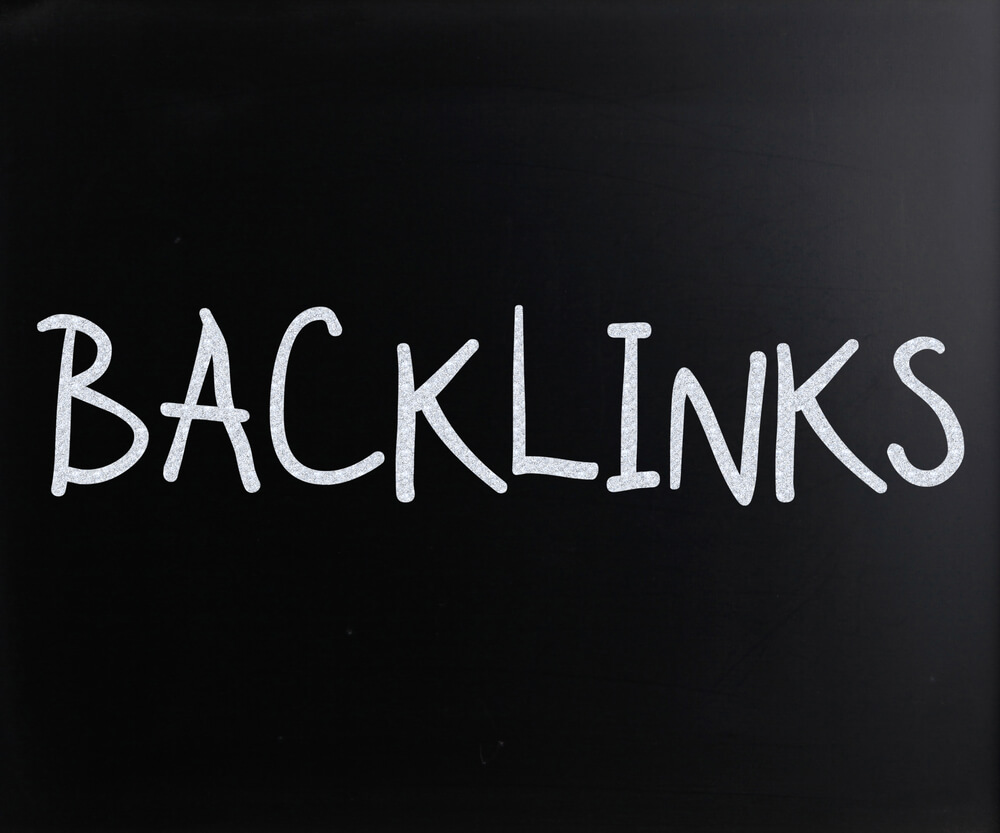What are Backlinks and Should You Care About Them?
Two separate conversations with sex blogger, writery friends in the same week proves this is a conversation we need to have on a wider scale. (Thanks to Dr. J and Raven Lee for the inspiration!)
What the hell are backlinks and why should you care about them?
First, let’s get something straight. I am no expert in backlinks, although I understand the concept. There are people who swear by them as a tool for growing a blog and audience, and for them, it’s a hill they’re willing to die on. I’m not. I’ll die on the hill of good content and authenticity. But I digress.

What is a Backlink?
The simplest definition of a backlink is any link on someone else’s website or blog that points to another website or blog. Every time you write a blog post and link to someone else you love (like for Share Our Shit Saturday), you’re creating a backlink. The literal definition (in my head) is a “link back to another website.”
Why Do Backlinks Matter?
One of the many parts of search engine algorithms (especially Google) says that when a site is linked to by other websites/blogs, they earn something known as “link juice.” This, essentially, is extra search engine love.
When someone links back to your content, they’re telling the search engines that your content is good, worthy of attention, and (potentially) related to a certain topic. Nearly every outside link you add to your website is sending a message about the value of the site you’re linking to.
So yes, the more backlinks you get, the more other sites are telling Google that your site is a good one and should show up higher in search. For the record, there’s a LOT more that goes into how and why your content ranks in Google. This is just one small part…but some people treat it like it’s the only part.
What about Nofollow Links?
We’ve talked about nofollow links before — specifically how they relate to paid content, affiliate links, and other “compensation.” Nofollow links also take away “link juice.”
You can make any link on your blog a nofollow link, not just those you receive compensation for.
Why would you do that? One reason — to make sure a site doesn’t get “credit” (with the search engines) for the link you’ve created to their site.
If you need to link to a site with really egregious content to prove a point (to show how awful they are or prove what was said), but you don’t want to show them any love, make it a nofollow link.
What About Dofollow Links?
If you’ve been blogging for any amount of time, you’ve surely received the email (or will soon enough) from a nameless, faceless “adult brand” wanting to buy a dofollow link. As mentioned in the post on nofollow links (linked above), the opposite of a nofollow link is a dofollow link.
Unless you mark a URL in your blog post as “nofollow,” it automatically becomes a dofollow link. You don’t have to do anything special. It simply is.
And it’s valuable AF to people who chase backlinks.
These brands shouldn’t ask you to sell them a dofollow link because it puts both sites in jeopardy (we only care about yours in this scenario). Google already makes adult content hard to find, but if they decide to ding your blog for not playing by the rules, it’s like you don’t exist online.
If you think a Twitter shadowban is hard, try a Google ban.
Why are Dofollow/Backlinks So Important?
Of the many, many, many pieces of advice on the internet about how to get your content found in Google search, one of the most common pieces of advice is to “get as many backlinks as possible.” More responsible marketing “gurus” will tell you to get “quality backlinks” (meaning, get linked on sites that fit your niche and who’s audience you want to get in front of).
But even they tend to believe that the answer to ranking on search and growing an audience is about begging people to link to you.
And the reality is that begging for backlinks will work if you get enough sites to do it. But at what cost?

Most Requests for Backlinks Feel Spammy
If you’ve ever curled your nose (or lip, as I tend to do) at a stranger/adult brand you don’t know asking for you to link to their content, you know what the cost is. Begging strangers to link to you comes across as spammy, usually because it IS spammy.
For website owners (especially brands and companies) and even decent bloggers who chase backlinks, these requests tend to put people off. They’re begging for a link (for their own benefit) without offering anything in return. Except for those who offer to pay for a dofollow link (which could get you in trouble) or offering to link back to you, as well.
I’m not opposed to being linked to — I love it. But since my personal blogging philosophy is about building relationships, I have zero interest in linking back to random companies or bloggers until I know if I want to be associated with them.
Backlinks are a Good Thing
For all my naysaying about dofollow links or spammy requests for backlinks, they aren’t awful. I just don’t think they should be the only thing you focus on. Creating good content and being authentic will serve you far better (now and in the long run) than begging people to link to your content.
The most simplistic advice (the kind that’s easier said than done) is to create content so good people want to link back to you.
That being said, there are ways you can give and receive link juice, backlinks, and linking love.
- Participate (when you can) in Share Our Shit Saturday
- Join in on blogging memes. It puts your content in front of more people, increasing the chances of a link. Plus, some of the memes do round-up/top story blog posts — and link back to any blogs named in the post. (If you are one of the bloggers chosen, and you get a link…that’s a backlink!)
- Link to resources and content you love. When you’re willing to link to others, you (in a weird, subtle way) may (eventually) earn your own links back. At the very least, you may get the attention of that blogger, and they may share your content later.
Bottomline: giving link love can (over time) lead to link love.

Linking to Other Sites
There seems to be some confusion about when you can or should link to someone else. If you want to point your audience to a blog post or website you think they’d like to know about, just create the link. It’s a courtesy to ask first, but if everyone who linked to other sites stopped to ask, the entire internet would shut down in about two seconds.
However, if you want to quote a blogger’s post (any part of it), ask first. My personal policy is that you can excerpt a paragraph or two, and then link back to my original content. Some people will allow more or less. Standard citation rules would say quoting a line or paragraph without asking is fine, but when in doubt, ask.
Never, never, never, EVER reproduce someone’s entire blog post on your own site, even if you link back to it. First of all, you’ve disincentivized anyone to click over to the other site. Second, you’ve created duplicate content (something else Google’s algorithms hate). Third, it looks like plagiarism, even if you say upfront you didn’t create the content. And no link juice/backlinking makes up for that…ever.
Ultimately, the choice to link to another site (for compensation, as an affiliate link, or because you love the content) is a personal decision. Yes, getting those links helps you show up in search (eventually, when you get enough of them). Showing link love (by linking to sites you love) helps those blogs and websites. But, in my opinion, the focus should never be on how many times people link to you. The focus should always be on creating content that is meaningful and important to you and that fits with your overall goals.
Keep doing creating content long enough, actively participate in the sex blogging community, and be generous with your own link love, and the linking will be returned ten-fold…ask me how I know.
This isn’t everything there is to know about backlinks, and there are dozens of online tools that help you learn about and find backlinks to your own site. If you’re curious, check out either Neil Patel or Ahrefs. It’s strictly vanilla content, but what they talk about tends to apply to any kind of blog. And if you want to know more, Googling “how to create good backlinks” will feel like drinking water out of a firehose sooooo…good luck.
Got thoughts or questions on this particular topic? Talk to me in the comments below or on Twitter!

The links are so important, great site and articles